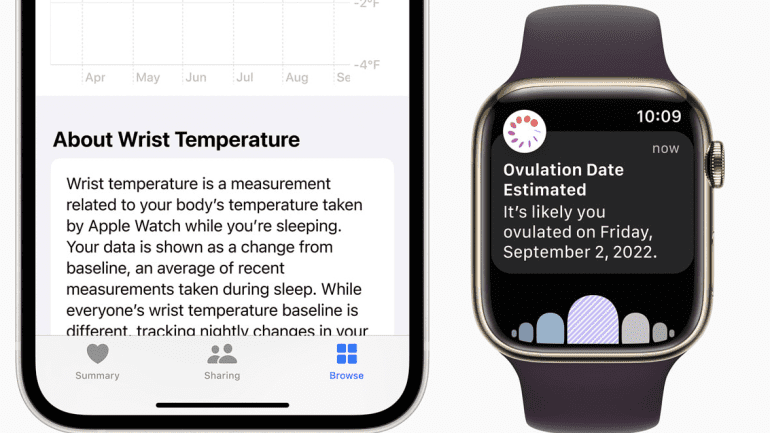At first glance, the Apple Watch Series 8 doesn’t look particularly exciting: the case of the latest Apple Computer Watch hasn’t changed and there’s only been minimal upgrades to the hardware. Still, Apple has added built-in health sensors. Smartwatch can now record body temperature for the first time. However, this is not a simple clinical thermometer. Instead, Apple is about improving women’s health, as the company emphasized this week.
two sensors in the clock
“The menstrual cycle is an important health marker and is considered an important function by many medical professionals,” the company wrote when introducing the Series 8. So the device has “cool new temperature detection functions that women can use to learn more about their health.”. A temperature sensor is installed on the back of the watch “closer to the skin” and under the display. The double measurement should make the system more accurate, detecting changes of at least 0.1°C, according to Apple.
The system is designed in such a way that it can also record the temperature during sleep. The measured value is recorded every five seconds. The information then ends up in the Health app and shows users changes throughout the day. Cycle tracking of the watch should be improved with information – rather than simply recording the temperature and entering it manually. The clock then does not allow prediction, but allows a “later estimate” of ovulation. “Knowing the timing of ovulation can be helpful for family planning,” Apple summarizes.
Privacy issues
The company doesn’t explain why pre-ovulation estimation isn’t possible – it’s conceivable that it’s intended to prevent unwanted pregnancies due to erroneous estimations. Alternatively, Apple may try to collect more data first to improve the system. “Temperature detection also enables better forecasts of duration,” the company continues.
With the temperature sensor in the Series 8, Apple is expanding the options to manually track cycles already available on the Watch and iPhone. The so-called cycle tracking app now also issues notifications when cycle history shows potential deviations, such as irregular, absent or prolonged periods as well as frequent bleeding, which could indicate health problems. Data should only be stored on the relevant device. Apple uses end-to-end encryption if the iCloud storage function is also used as an option. According to its own statements, the group – as with other health data – does not have access to the information.

(BSc)

Internet fan. Alcohol expert. Beer ninja. Organizer. Certified tv specialist. Explorer. Social media nerd.






